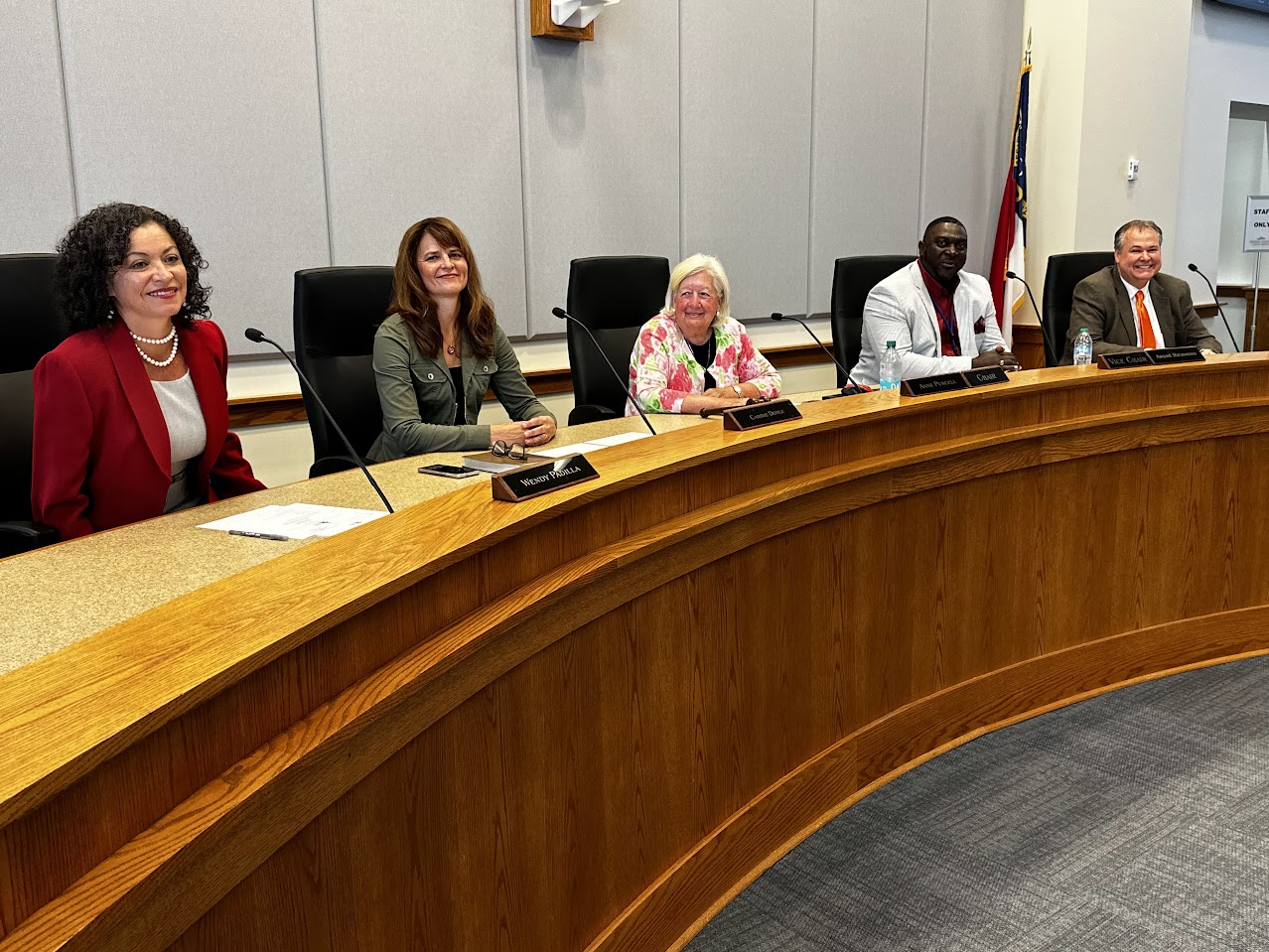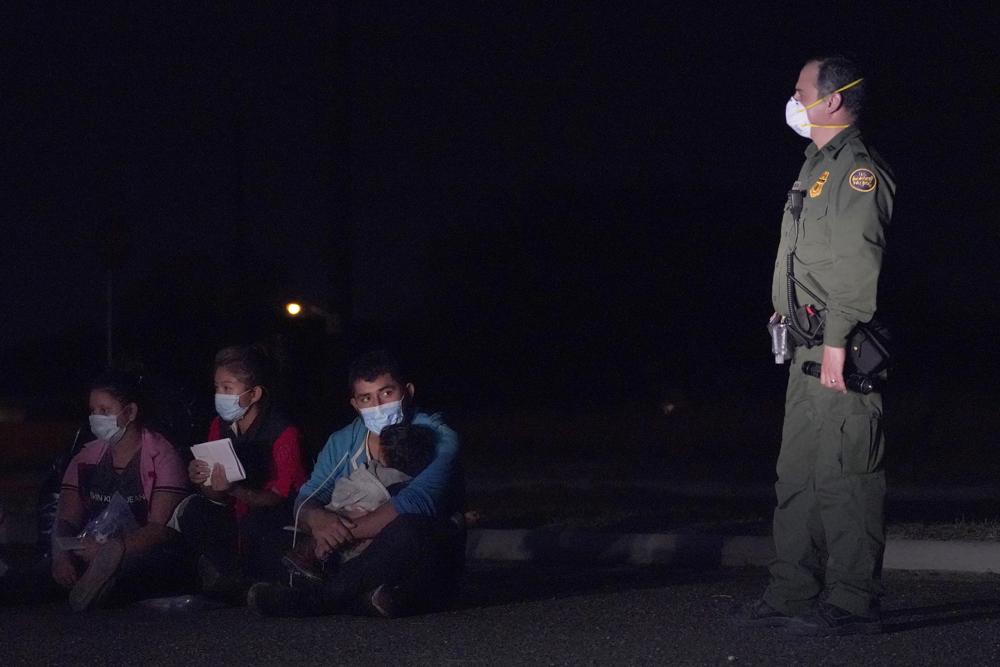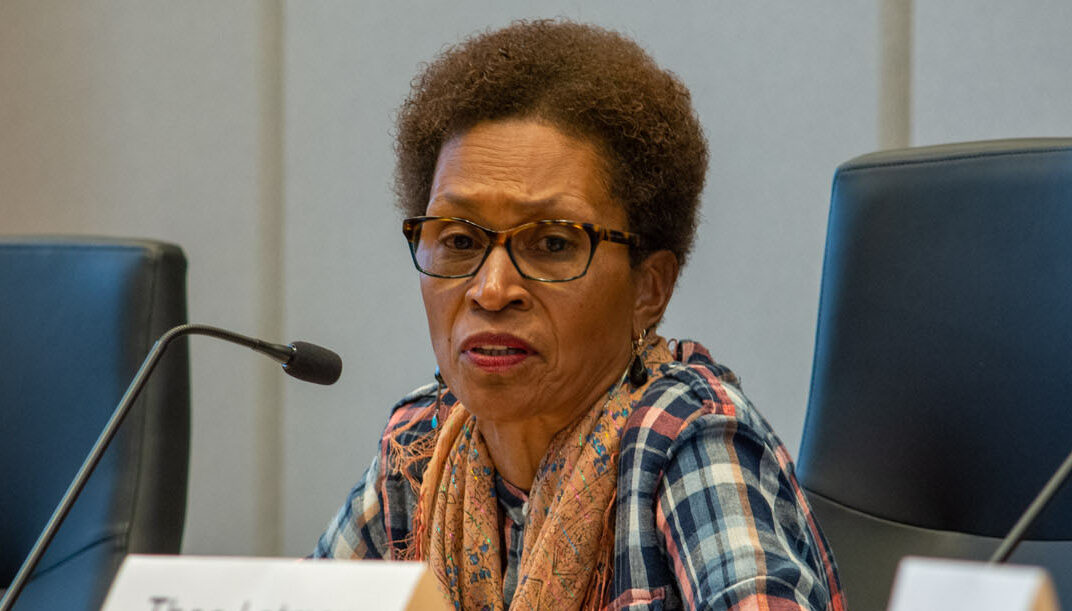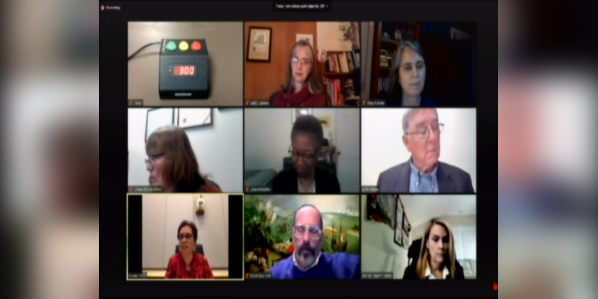Migrant children at the country’s southern border are beginning to be reunited with some of their parents. But many families still remain separated and a timeline for return is unknown.
This extended negative experience has sparked debate across the U.S., but has particularly engaged doctors and children specialists, including here in Orange County. There’s concern over the long term effects from these adverse childhood experiences, or ACEs for short, beyond the initial separation.
Alexandra Morris, the early childhood specialist and consultant for Orange County’s KidSCope, explained how ACEs were initially studied.
“ACEs are a set of 10 childhood traumas that have been identified by doctors and surveyed by the Centers for Disease Control and Prevention,” said Morris. “ACEs were identified 20 years ago, but we’re still learning about them in the greater public sphere now.”
The CDC listed negative experiences like abuse, neglect or violence in their initial research in 1997. Now, more categories like witnessing violence outside the home, experiencing discrimination and being homeless have been added onto the list.
These negative experiences have a wide range effects, according to Morris.
“One of the things that we’ve found now is the effects of ACEs are not just emotional,” she said. “They take a toll on the body as well, so it’s become a public health issue. Childhood trauma is affecting adults throughout their lifespan on the emotional level but also the physical and behavioral level.”
Morris explained about the various connections discovered between ACEs and long-term health issues.
“They found that if you have four or more, you are two-and-a-half times more likely to have pulmonary heart disease, two-and-a-half times more likely to have hepatitis, four-and-a-half times more likely to suffer from depression, 12 times more likely to attempt suicide. These are common physical maladies that have been connected to early childhood experiences.”
Morris spoke about the situation on the southern border, saying it’s a serious threat to the children’s health and much will need to be done to repair their long-term resilience.
“These children have been caught in the crossfire of our political system,” Morris said, “and they’re experiencing adverse childhood experiences as we speak. Their brain development is being disrupted and this could have a permanent affect on them through their lifespan.”
Morris encouraged local community to use their resources for any local children with ACEs. Groups like KidSCope and Resilience Orange County have resources available for training, education, and consultation of all ages to help those in Orange County.
Related Stories
‹

Orange County School Board Adopts Resolution Supporting Immigrant Families, StudentsOrange County's school board passed a resolution in favor of helping its immigrant families and students, the latest act of local support.

Trump’s Immigration Crackdown Leaves Some Families Weighing the Risk of Sending Kids to SchoolEducators try to reassure immigrant parents that schools are safe for their kids, despite Trump’s pledge to carry out mass deportations.

CHCCS and OCS Discuss Alternate Funds, Hiring Private Consultant with CountyIn a joint meeting on September 29 with Chapel Hill-Carrboro City Schools and Orange County schools, the groups requested alternative funding and the hiring of a private consultant to continue development.

Orange County Commissioners Issue Lynching Apology, Approve Historical MarkersThe Orange County Board of County Commissioners approved resolutions last Tuesday acknowledging and apologizing for all "criminal acts of racial terror lynching” in Orange County.

Orange County Board of Commissioners Seeks Input on Election ProcessElections for the Orange County Board of Commissioners are held in even numbered years with commissioners serving four-year terms, however the board is now seeking public input on how those elections are held. If changes are made, they could be applied in the next commissioner election in 2022.

U.S. Begins Reuniting Some Families Separated at Mexico BorderWritten by ELLIOT SPAGAT The Biden administration said Monday that four families that were separated at the Mexico border during Donald Trump’s presidency will be reunited in the United States this week in what Homeland Security Secretary Alejandro Mayorkas calls “just the beginning” of a broader effort. Two of the four families include mothers who were separated from […]

Orange County CROWN Act Expands Non-Discrimination Ordinances to Natural HairOrange County government passed the CROWN Act banning discrimination based on a person’s hair texture or hairstyle, especially those associated with a particular race, religion, or national origin. CROWN is an acronym standing for "create a respectful and open world for natural hair." The Orange County Board of Commissioners unanimously passed adopting language from the act to update its non-discrimination ordinance.

In Biden’s Early Days, Signs of Trump-Era Problems at BorderThe day after she gave birth in a Texas border hospital, Nailet and her newborn son were taken by federal agents to a holding facility that immigrants often refer to as the “icebox.” Inside, large cells were packed with women and their young children. Nailet and her son were housed with 15 other women and […]

Fowler, Hamilton Join Orange County Commissioners; Farewells Given to Rich, MarcoplosMonday night, Orange County’s Board of Commissioners acknowledged oaths of office for new and re-elected board members and said goodbye to those who just finished their four-year terms.

Specialists Concerned Over Health of Children Separated at BorderMigrant children at the country’s southern border are beginning to be reunited with some of their parents. But many families still remain separated and a timeline for return is unknown. This extended negative experience has sparked debate across the U.S., but has particularly engaged doctors and children specialists, including here in Orange County. There’s concern […]
›











